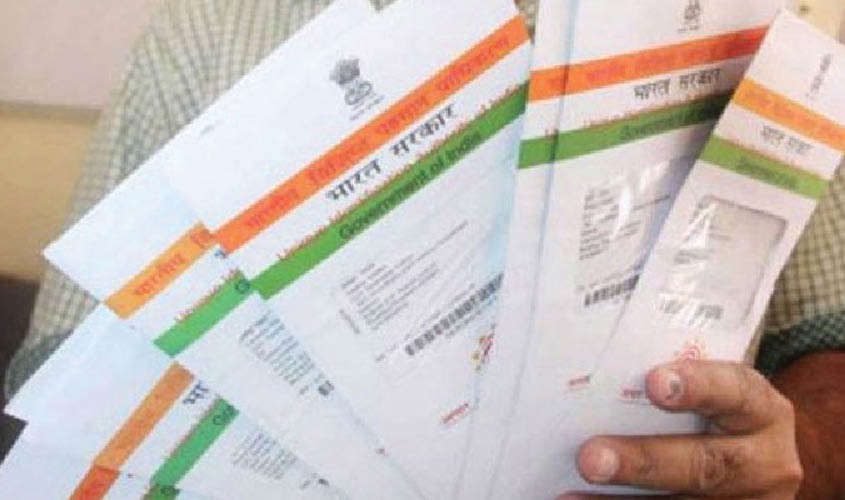The Supreme Court on Wednesday upheld the validity of the Aadhaar document, but with modifications, holding that the unique identity number will not be needed for opening bank accounts, admissions in schools or for getting mobile phone connections.
A five-member bench of the apex court headed by Chief Justice Dipak Misra struck down Section 57 of the Aadhaar Act which allows private entities to demand Aadhaar to access their services.
The court also said that as of today “we do not find anything in Aadhaar Act which violates right to privacy of individual citizen”.
The judgement, read out by Justice A.K. Sikri on behalf of the bench, also struck down the provision in Aadhaar law allowing the sharing of Aadhaar data, citing grounds of national security.
The judges who gave majority ruling were A.M. Khanwilkar, Ashok Bhushan, Misra and Sikri who approved the provision of money bill.
“We are of the view that there are sufficient safeguard to protect data collected under Aadhaar scheme,” the judgement said.
Linking of Aadhaar to issuing mobile phone connections and opening bank accounts was unconstitutional, the court held.
In a separate judgement, Justice D.Y. Chandrachud said the Aadhaar Act cannot be treated as money bill. Passing a legislation which was not money bill as money bill was a fraud on the Constitution.
He also observed there was a risk of surveillance of people on the basis of data collected under Aadhaar scheme and that the data could be misused.
The majority of the bench held that Aadhaar was valid for linking with Income Tax returns.
The verdict said that it was better to be unique than the best because being the “best makes you number one, but being unique makes you the only one.
“Uniqueness is the fundamental difference between Aadhaar and other identity proofs. There is a fundamental difference between Aadhaar and other identity proof as Aadhaar cannot be duplicated and it is a unique identification,” it said.
The judgement said that UIDAI was established as a statutory body, providing for authentication and all residents were eligible to get Aadhaar which cannot be reassigned to anyone.
“Minimal demographic and biometric data of citizens are collected by UIDAI for Aadhaar enrolment. We are of the view that there are sufficient safeguard to protect data collected under Aadhaar scheme,” it said.
The court said that Aadhaar was meant to give dignity to marginalised sections. However, authentication of data through Aadhaar cannot be stored for more than six months.
It said Aadhaar was meant to help benefits reach marginalised sections and it took into account the dignity of people not only from the personal but also the community point of view.
“No person will be denied benefits under social welfare scheme because of failure of authentication through Aadhaar,” the court said.
“We direct the government to ensure that illegal migrants are not issued Aadhaar to get benefits of social welfare schemes.”
The court said that institutions like the CBSE and UGC cannot make Aadhaar mandatory.
“Aadhaar for school education would not be necessary because it is neither welfare nor subsidy,” the court said, holding that Sarva Shiksha Abhiyan does not require Aadhaar.

